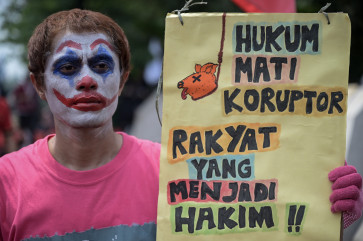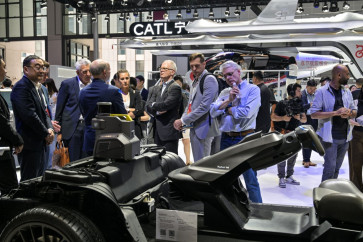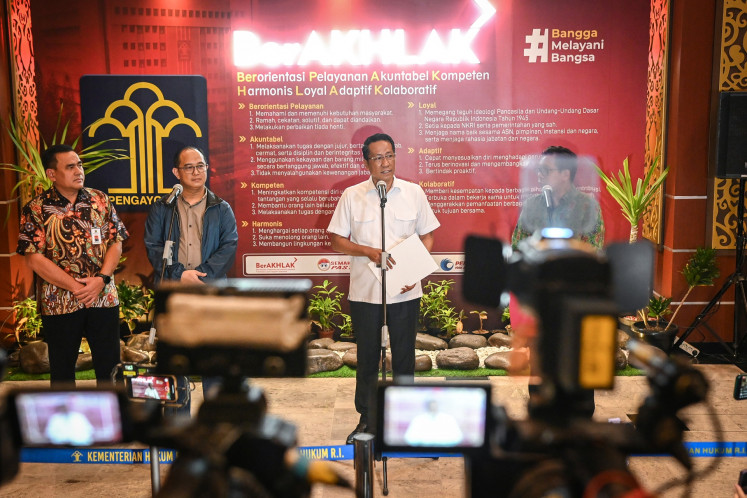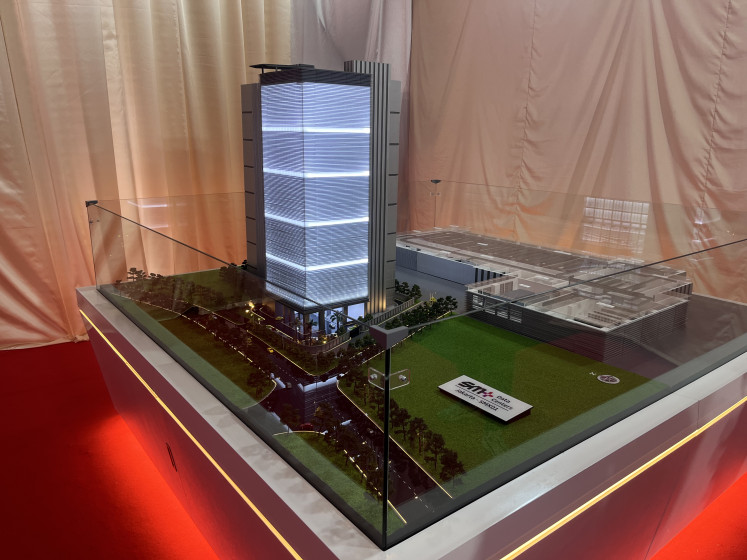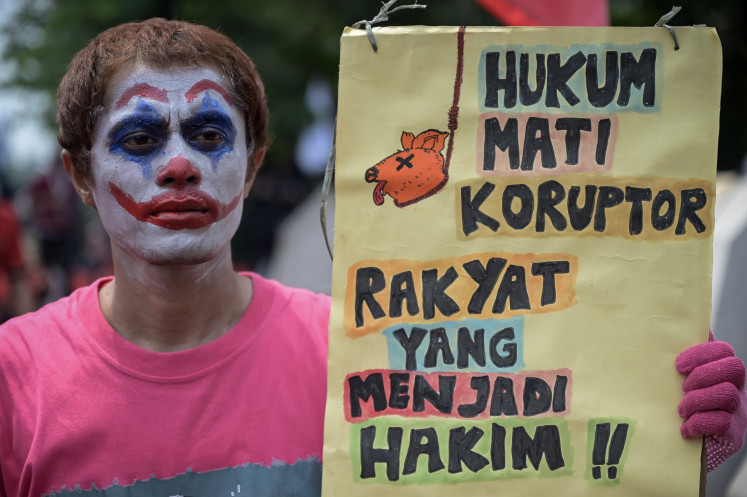Popular Reads
Top Results
Can't find what you're looking for?
View all search resultsPopular Reads
Top Results
Can't find what you're looking for?
View all search resultsWe’re working on system improvement, not case by case
After the Presidential Judicial Mafia Task Force finished its duties on Jan
Change text size
Gift Premium Articles
to Anyone
A
fter the Presidential Judicial Mafia Task Force finished its duties on Jan. 12, 2012, President Susilo Bambang Yudhoyono issued a regulation empowering the Presidential Working Unit for Supervision and Management of Development (UKP4) with the establishment of a law division within the agency. To have more insight on the new division, The Jakarta Post’s Ina Parlina recently talked to UKP4’s newly installed deputy for law Mas Achmad Santosa.
Question: Could you explain the tasks of your division?
Answer: The main functions are to strengthen law enforcement and the prevention of corruption. The government already has the instruments [to deal with legal cases]. It has Presidential Instruction No. 1/2011 on Acceleration of the Handling of Law and Tax Irregularity Cases. This can be used, for example, to speed up the legal process into graft cases such as that of former tax officer Gayus H. Tambunan.
The Presidential Instruction No. 2/2011 on Acceleration of Bank Century Case Handling is used to speed up efforts to recover state assets in the Bank Century bailout case.
Other legal instruments are the Presidential Instruction No. 9/2011 on the Action Plan for Prevention and Eradicating Corruption and the Presidential Instruction No. 17/2011 on the Prevention and Eradication of Corruption.
Our task is to ensure that these are carried out consistently. However, there’s a challenge for us to ensure the implementation is made proportionally in order to improve public trust. Another task is to unclog the bottleneck.
Could you give an example of your activities?
Just recently, several anticorruption activists had a dialogue with President Susilo Bambang Yudhoyono at the State Palace during which they demanded five things. Among their demands was that the government ensures the country’s law enforcers are free from corruption. It is our job to outline and analyze that demand.
After studying it, we have to make sure their demands are being accommodated, particularly with the issuance of Presidential Instructions. If it is not, it will be subject to our monitoring. That is an example of unblocking the bottleneck.
Another example is our attempt to assess and formulate how land conflicts like the recent one in Mesuji, Lampung, can be resolved. We have to get to the root of the problem of why land conflict is still rampant.
One more example is the pursuit of stolen state assets due to graft. These assets must be returned to the state. Our presence here should assist the effort of assets recovery.
How can we accelerate the recovery of state assets? By helping the Law and Human Rights Ministry, the Attorney General’s Office and the National Police.
How would you describe your work?
It is specified in the Presidential Instruction No. 9 and 17. For example, we are pushing for transparent case management in the law-enforcing institutions and a merit-based recruitment system.
Those institutions often have their own agendas. How can you ensure they follow your advice?
Well, we have the Presidential Instructions. Not to mention, the UKP4 has monitoring powers and we usually conduct intensive coordination with them.
What is your strike force?
We have several; the first is in the form of the Presidential Instructions. The second is the contents of those instructions, what they specify. The third will be good relations with other institutions, and the fourth is that the instructions have the full support of the President and the Vice President.
Does the division apply any reward-and-punishment mechanism for law enforcement institutions?
The point is all of our reports are submitted to the President. We are the President’s working unit, the President’s delivery unit for development, monitoring and oversight.
Will the new unit carry out a crackdown on corruption just like the task force?
I don’t think there will be one. UKP4 is based on a soft approach. We are silent, unpublicized, low profile. No matter how hard the problem is, we emphasize the work itself and on pushing other institutions to work better. We focus on working together with them. In terms of system improvement, it is probably more effective to work in this kind of manner.
What do you think about the country’s prospects in eradicating corruption?
Let me take an example. Several anticorruption activists were concerned at the recent dialogue that the President was simply concerned about maintaining a good image. For me, there is hope that the dialogue will be made a regular forum. Each time, it will be evaluated. So, UKP4 is not only preparing what the government should do to address them, but also to make sure the program is carried out. So, we will have progress to present at the next meeting. I believe this is progress.
How can you improve public confidence?
That is the challenge. People always connect it with how the graft cases are handled. Corruption cases are still frequent, yet those are handled by three institutions, the Corruption Eradication Commission (KPK), the Attorney General’s Office (AGO) and the police. We are now working to increase public confidence in the police and the AGO. As for the KPK, the President must not intervene. He needs only to give a political umbrella or political protection for the KPK to carry out their duty.
Does your office also push for immediate handling of the cases or does it work to improve the system?
According to the Presidential Instruction, UKP4 does not work on the cases. We are more on improving the system, including that of law enforcers. We try to improve legal policy, the recruitment system and much more.
Ours is a bit different from the taskforce’s job, which also handles cases. There are some public complaints [questioning our role].
How about the high-profile cases?
Well, we have a different approach from that of the taskforce. We are more silent and low key. But, we share the same goal. The point is how to unclog the blocked system.
So, you don’t work on any cases at all?
Among the demands of the activists is for the government to investigate the police “fat bank accounts”. So, we are working on that and will issue a recommendation on it.


